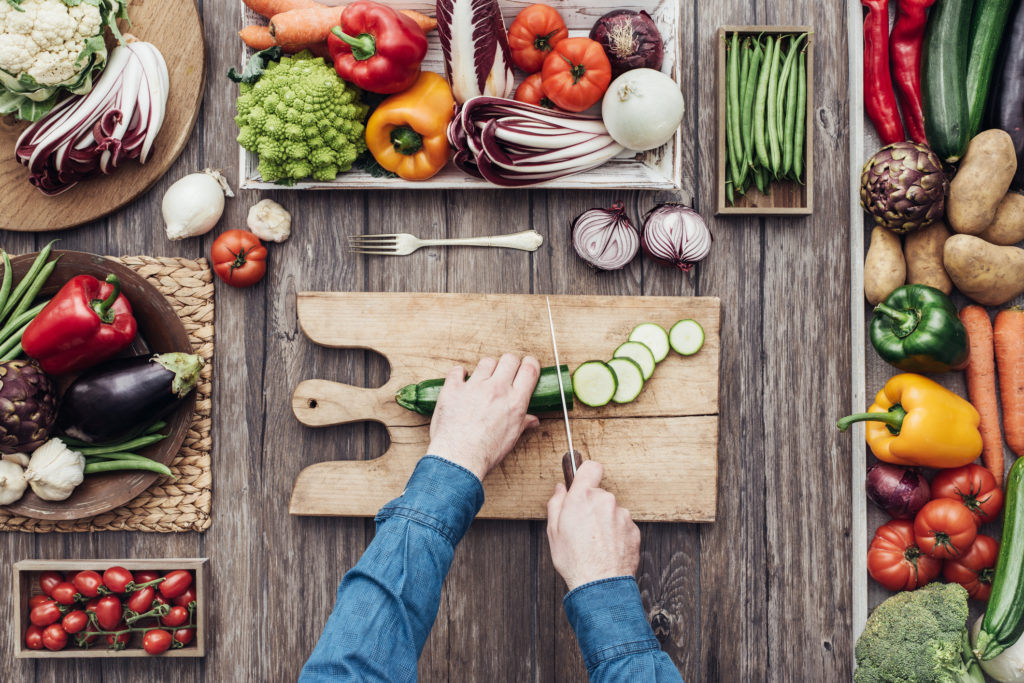in the ‘yes’ corner
Paul Giblin is a runner, vegan and two-time champion of the prestigious West Highland Way ultramarathon. He believes vegan running is the foundation of his success.
 Can becoming a vegan make you a better runner?
Can becoming a vegan make you a better runner?
I think so. Certainly, the main reason I chose a plant-based diet was to improve performance: it allows me to recover quicker, meaning I can train harder and more often than many of my competitors. I feel strong and lean, sleep better and have lower stress levels.
Where do you get your protein from?
There are a lot of myths about protein. Firstly, we don’t need as much as we’ve been led to believe. Secondly, this protein doesn’t need to come from animals. Legumes are an obvious non-meat source of protein, as is spinach, quinoa and kale.
Meat is full of runner-friendly things such as iron. Is it hard to find plant-based alternatives?
There are virtually no nutrients in animal-based foods that are not better provided by plants. If you look at the facts, there’s 10 times as much iron in plant-based foods than in animal-based alternatives. In addition, plants have higher levels of beta-carotene, vitamin C, magnesium and calcium.
What do vegans eat during races?
It depends on the length of the race. For the ‘shorter’ 50-mile races, I tend to stick with homemade energy bars, HoneyStinger chews and bananas. For the longer stuff, I’ll add in some fruit, nuts, porridge and sweet potato.
Why, in your opinion, should runners consider going vegan?
I believe it can put you on a much more sustainable path to long-term health, both for yourself and the planet. With regards to running, it’ll help you to recover quicker, train harder and keep performing for many years to come.
in the ‘no’ corner
 Dr Loren Cordain is a scientist and the founder of the paleo movement, which encourages low-carb, meat-heavy nutrition.
Dr Loren Cordain is a scientist and the founder of the paleo movement, which encourages low-carb, meat-heavy nutrition.
Won’t eating lots of meat make you overweight?
On the contrary, wide-reaching studies conclusively show that high-protein diets are the best way to lose weight and keep it off. Most lean meats, seafood and eggs are rich sources of protein, and they also blunt the appetite and increase the metabolism.
Isn’t red meat supposed to be bad for your health?
Well, processed red meats (bacon, salami, hot dogs, deli meats) are associated with an increased risk of cancer and heart disease. However, fresh, non-processed red meats have absolutely no association with these diseases.
What is your opinion on a vegan diet for runners?
Vegan diets cause our bodies to become deficient in a variety of nutrients, including vitamin B12, vitamin B6, vitamin D, calcium, iron, zinc, iodine, and omega 3 fatty acids. Each and every one of these nutrient deficiencies impairs health and endurance performance, particularly the longer they are practiced.
What can a meat-eating diet offer you that a plant-based diet can’t?
Plant foods contain no vitamin B12 and consequently elevate a toxic compound in our bodies called homocysteine, which impairs health and athletic performance. Further, plant food sources of iron and zinc compared to animal foods score poorly. Low blood levels of zinc and iron have a huge impact upon endurance athletic performance.
What’s the best kind of meat for runners to eat?
From a nutritional perspective, the healthiest meats run in this order: 1) fresh wild game meat; 2) fresh grass-raised or free-ranging meats; 3) fresh lean feed-lot produced meats; 4) fresh fatty feed-lot produced meats; 5) processed, salty, canned, packaged and preservative-laden meats. Everyone should avoid eating meats in this last category.







